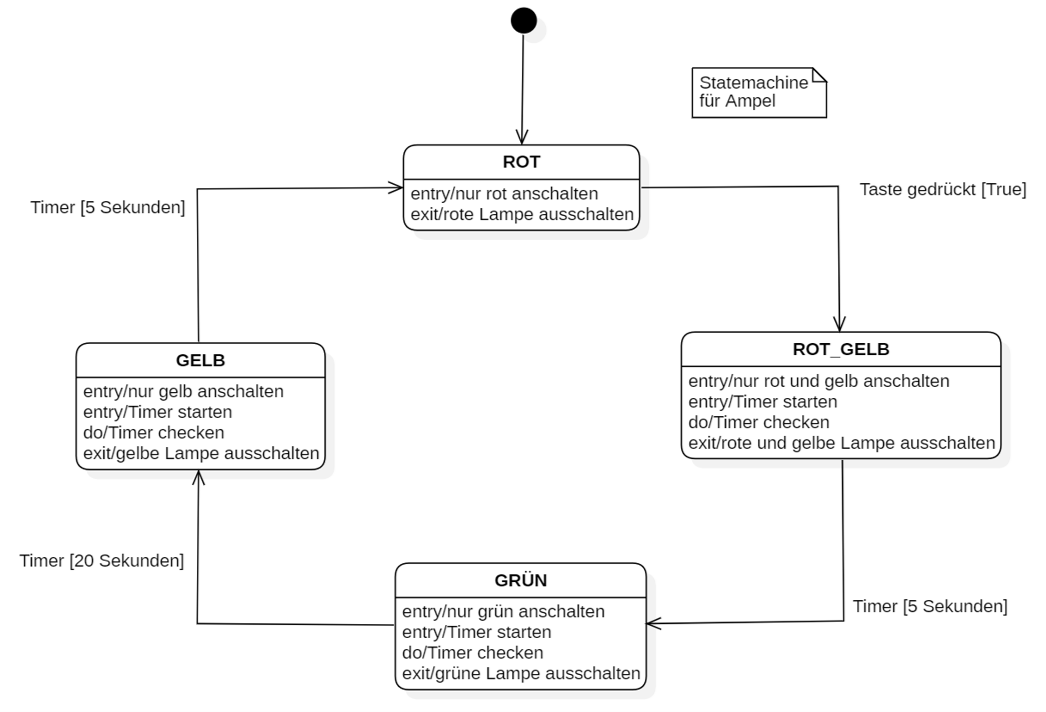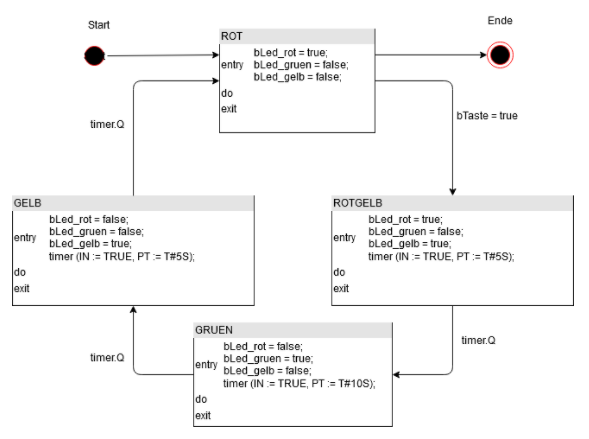4. State Machine Diagram
4.1. Procedure & Checklist
Brainstorming
Create a table with the following columns:
1st column: All states,
2nd column: All events that can occur internally or externally,
3rd column: All processing steps that must be listed.
Which states does the automat receive?
The starting point is the initial state.
By which events is a state left?
Which subsequent states occur?
By what is the state defined (attribute values, object relations)?
Does the state machine need a final state?
If the final state is reached, the processing of the state machine ends.
If the state machine describes a life cycle, the termination of the state machine can be equated with the end of life of the object.
No processing may be performed in a final state; it may not have any output arrows.
Which activities are to be modeled?
Is there any processing associated with a state diagram?
Do all incoming transitions of a state have the same activity? –> entry activity
Do all outgoing transitions of a state possess the same activity? –> exit activity
Is the processing linked to the duration of the state? –> do-activity
Which events are to be modeled?
External events from the user or from other objects;
Temporal events (duration, time);
Internally generated events of the class or use case.
Analytical steps - Appropriate state name.
Describes a specific time period.
Does not contain a verb.
Analytical steps - Are all transitions correctly entered?
Is every state reachable?
Can each state - except the final state - be exited?
Are the events of the transition unique?
Can events occur that are not covered by the specified events?
Source: “UML 2 compact with checklists”, Heide Balzert
4.2. Further
Hint
State diagrams can be created online on draw.io (https://app.diagrams.net/).
Note
In the literature there are different uses of the “entry”, “do” and “exit” conditions. We use the following notatin:
Entry activity: action which is triggered when entering the state, e.g.
light = FalseDo activity: action which is executed as long as you are in this state, e.g. count sheep
Exit activity: action which is executed when one leaves the state, e.g.
sleep = True
https://www.visual-paradigm.com/guide/uml-unified-modeling-language/what-is-state-machine-diagram/
4.3. Examples for state diagrams
Example for the circuit of a person traffic light

